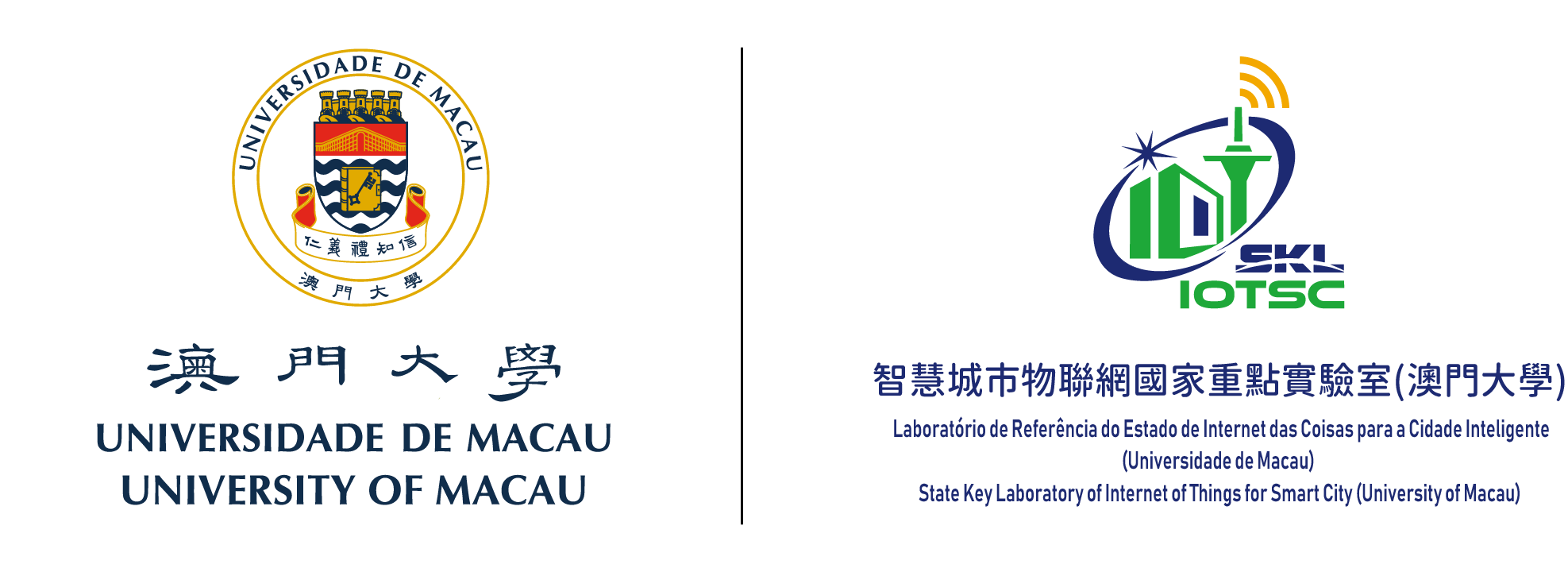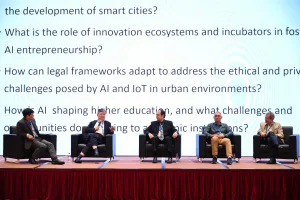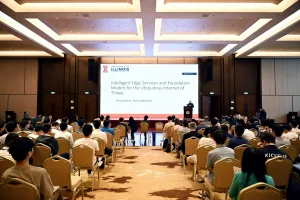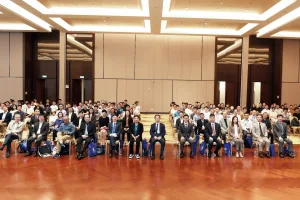The 3rd Macao Conference on Smart City Technologies, organised by the State Key Laboratory of Internet of Things for Smart City of the University of Macau (UM), is held at UM today (3 November). With the theme ‘Energizing Tomorrow’s Cities: Unleashing the Potential of Smart AI’, this year’s conference brings together more than 100 experts and scholars from home and abroad to explore key strategies, pioneering theories, crucial technologies, and practical applications for smart city development.
Yonghua Song, rector of UM and director of the State Key Laboratory of Internet of Things for Smart City, is the general chair of the conference. In his virtual speech, Song said that the transformational power of technology, especially in creating smarter, more resilient cities, has never been more crucial to the recovery of the global economy in the post-pandemic era. The conference provides a platform for experts, scholars and industry practitioners to share their knowledge on novel theories, key technologies, and practices for smart city innovation, and also to promote potential industry-academia collaborations.
The conference covers five technical tracks in the field of smart city, namely sensing and communications, AI and big data, smart energy, intelligent transportation, and urban public safety and disaster prevention. It comprises keynotes, talks, industrial and poster sessions, as well as a newly added panel discussion.
Keynote speakers at the conference included Shen Xuemin, professor at the University of Waterloo; Tarek Abdelzaher, chair professor at the University of Illinois Urbana-Champaign; Mohammad Shahidehpour, university distinguished professor at the Illinois Institute of Technology; Xiong Hui, chair professor at Rutgers University; and Zhang Limin, head and chair professor at The Hong Kong University of Science and Technology. In addition, Xu Cheng-Zhong, dean of UM’s Faculty of Science and Technology and chair professor of the State Key Laboratory of Internet of Things for Smart City, chaired the panel discussion titled ‘AI and the Urban Renaissance’. During the panel discussion, Guo Yike, provost and chair professor at The Hong Kong University of Science and Technology; Tarek Abdelzaher; Yang Qiang, chief artificial intelligence officer of WeBank; and Rostam J. Neuwirth, professor in UM’s Faculty of Law, discussed how artificial intelligence can promote the development of urban intelligence from various aspects. Moreover, more than 60 scholars from different research institutes give talks to share their latest achievements.
This year’s conference follows the format of the previous edition, providing participants with opportunities for interdisciplinary exchanges. It aims to go beyond the Guangdong-Hong Kong- Macao Greater Bay Area, and offers a platform for scholars and industry practitioners from around the world to publish their original and significant research results. Focusing on smart communication, big data, energy, autonomous driving, and public safety, the conference presents a range of projects on smart city development, the building of models for Internet of Things applications, and the development of artificial intelligence technologies, transforming research results into practical applications.
The conference is co-organised by the Faculty of Science and Technology of UM, the Science and Technology Development Fund (FDCT) of the Macao SAR, the Macao Post and Telecommunications Bureau, the Zhuhai UM Science & Technology Research Institute, and the Guangdong-Hong Kong-Macao Joint Laboratory for Smart Cities. It is sponsored by Huawei Macau, CEM, CTM, BoardWare Information System Limited, and China Construction Engineering (Macau) Company Limited. It is also supported by the Macao Meteorological and Geophysical Bureau and the Transport Bureau. Guests attending the conference also included Chen Xiangsheng, member of the Chinese Academy of Engineering and chair professor at Shenzhen University; Ip Kuai Lam, member of the Administrative Committee of FDCT; Leong Weng Kun, director of the Meteorological and Geophysical Bureau; Lei Veng Hong, deputy director of the Transport Bureau; Ip Chong Wa, member of the Administrative Committee of the Post and Telecommunications Bureau.




